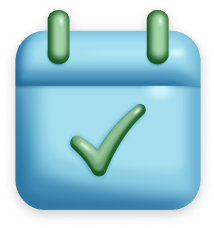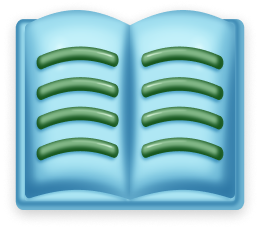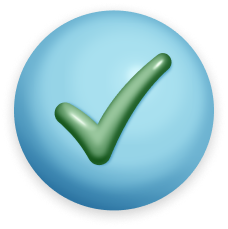
- Accepted by Connecticut Board of Nursing.
- Instant access to all courses, including our 30 contact hour course.
- No tests required – easily complete your courses with one click.
- 100% online. No tests- receive your certificates immediately.
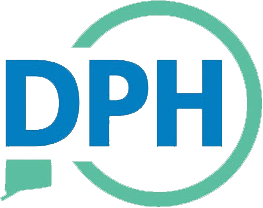
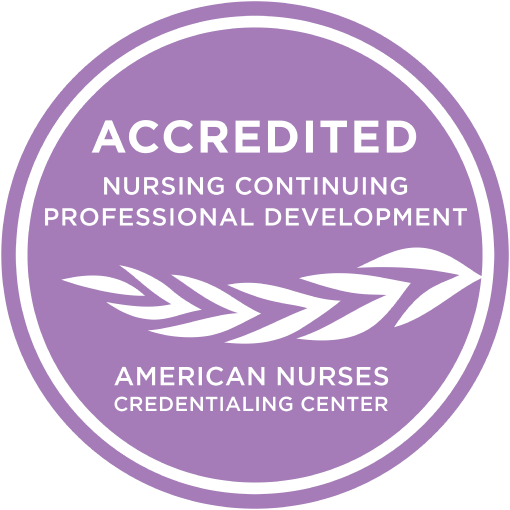
- Accepted by Connecticut Board of Nursing.
- Instant access to all courses, including our 30 contact hour course.
- No tests required – easily complete your courses with one click.
- 100% online. No tests- receive your certificates immediately.


- Accepted by Connecticut Board of Nursing.
- Instant access to all courses, including our 30 contact hour course.
- No tests required – easily complete your courses with one click.
- 100% online. No tests- receive your certificates immediately.




Your Connecticut Courses And Requirements
Pick your license type to see your license renewal requirements and our courses that satisfy those requirements. Your enrollment includes all state required courses.

Nursing CE Central has all the courses, for each license level, required by Connecticut.
Connecticut
Requirements
The Connecticut Department of Public Health requires all registered nurses actively practicing in Connecticut to complete 2 contact hours on screening for PTSD, risk of suicide, depression and grief, and suicide prevention training every 6 years.
Courses That Match Requirements
Contact Hours
Pressure Injury Prevention, Staging, and Treatment Course Outline
- Introduction
- What is a pressure injury?
- What causes pressure injuries to develop?
- What are risk factors for developing a pressure injury?
- What is happening on a global scale?
- What is happening nationally?
- How do pressure injuries impact healthcare?
- What is the difference between wound assessment and staging?
- What are the six stages of pressure injuries?
- What are other types of pressure injuries?
- How are pressure injuries diagnosed?
- What are some ways to prevent pressure injuries?
- How are pressure injuries treated?
- What is the nurse’s role in pressure injury prevention?
- How can nurses prevent medical device-related pressure injuries?
- How can nurses identify pressure injuries in patients with darker skin tones?
- How can nurses quickly differentiate between pressure injury stages?
- What should patients know?
- What is a pressure injury quality improvement initiative?
- What are some pressure injury quality measures
- Conclusion
Quality Improvement for Nurses Course Outline
- Introduction
- What is Quality Improvement?
- History and Background
- Models
- IOM Six Domains of Patient Care
- Nursing Quality Indicators
- Data Collection
- Change Models in Healthcare
- Implementing Change
- Evaluating Change
- Examples of Quality Improvement Projects in Nursing
- Conclusion
Nurse Advocacy in Elder Abuse Course Outline
- Introduction
- Statistics
- Types of Elder Abuse
- Risk Factors and Protective Factors
- Prevention
- Reporting
- Additional Resources
- Conclusion
Basic Ventilator Management Course Outline
- Introduction
- Ventilator Mechanism of Action
- Ventilator Types
- Understanding Ventilator Terminology
- Indications for Invasive and Non-Invasive Mechanical Ventilation
- Ventilator Settings
- Volume- and Pressure-Controlled Modes
- Continuous Positive Airway Pressure Mode
- High Frequency Mode
- High- and Low-Pressure Alarms
- Alarm Types and Troubleshooting
- Alarm Fatigue
- Nursing Care: Priorities, Assessments, and Interventions
- Conclusion
Connecticut Mental Health Conditions Course Outline
- Introduction
- Epidemiology
- Signs, Symptoms, and Criteria for Common Mental Health Diagnoses
- Depression
- Anxiety
- PTSD
- Suicide
- Case Study
- Screening
- Taking Action
- Suicide Prevention
- Revisit Case Study
Bioethics in Nursing Course Outline
- Introduction
- Definition and Purpose
- Principles of Bioethics
- Types of Ethics and Professions
- Ethics in Nursing
- Research in Ethics
- Ethical Decision-Making
- Conclusion
Requirements
The Connecticut Department of Public Health requires all licensed practical nurses actively practicing in Connecticut to complete 2 contact hours on screening for PTSD, risk of suicide, depression and grief, and suicide prevention training every 6 years.
Courses That Match Requirements
Contact Hours
Pressure Injury Prevention, Staging, and Treatment Course Outline
- Introduction
- What is a pressure injury?
- What causes pressure injuries to develop?
- What are risk factors for developing a pressure injury?
- What is happening on a global scale?
- What is happening nationally?
- How do pressure injuries impact healthcare?
- What is the difference between wound assessment and staging?
- What are the six stages of pressure injuries?
- What are other types of pressure injuries?
- How are pressure injuries diagnosed?
- What are some ways to prevent pressure injuries?
- How are pressure injuries treated?
- What is the nurse’s role in pressure injury prevention?
- How can nurses prevent medical device-related pressure injuries?
- How can nurses identify pressure injuries in patients with darker skin tones?
- How can nurses quickly differentiate between pressure injury stages?
- What should patients know?
- What is a pressure injury quality improvement initiative?
- What are some pressure injury quality measures
- Conclusion
Quality Improvement for Nurses Course Outline
- Introduction
- What is Quality Improvement?
- History and Background
- Models
- IOM Six Domains of Patient Care
- Nursing Quality Indicators
- Data Collection
- Change Models in Healthcare
- Implementing Change
- Evaluating Change
- Examples of Quality Improvement Projects in Nursing
- Conclusion
Nurse Advocacy in Elder Abuse Course Outline
- Introduction
- Statistics
- Types of Elder Abuse
- Risk Factors and Protective Factors
- Prevention
- Reporting
- Additional Resources
- Conclusion
Basic Ventilator Management Course Outline
- Introduction
- Ventilator Mechanism of Action
- Ventilator Types
- Understanding Ventilator Terminology
- Indications for Invasive and Non-Invasive Mechanical Ventilation
- Ventilator Settings
- Volume- and Pressure-Controlled Modes
- Continuous Positive Airway Pressure Mode
- High Frequency Mode
- High- and Low-Pressure Alarms
- Alarm Types and Troubleshooting
- Alarm Fatigue
- Nursing Care: Priorities, Assessments, and Interventions
- Conclusion
Connecticut Mental Health Conditions Course Outline
- Introduction
- Epidemiology
- Signs, Symptoms, and Criteria for Common Mental Health Diagnoses
- Depression
- Anxiety
- PTSD
- Suicide
- Case Study
- Screening
- Taking Action
- Suicide Prevention
- Revisit Case Study
Bioethics in Nursing Course Outline
- Introduction
- Definition and Purpose
- Principles of Bioethics
- Types of Ethics and Professions
- Ethics in Nursing
- Research in Ethics
- Ethical Decision-Making
- Conclusion
Requirements
APRNs are required to complete 50 contact hours of continuing education every 2 years.
- 5 of the 50 contact hours must be on pharmacotherapeutics
- 1 of the 50 contact hours must be on each of the following topics:
- 1 hour on diseases, including but not limited to: acquired immune deficiency syndrome and human immunodeficiency virus
- 1 hour on risk management
- 1 hour on sexual assault
- 1 hour on domestic violence
- 1 hour on cultural competency
- 1 hour on substance abuse, including but not limited to: prescribing controlled substances and pain management
- 2 of the 50 contact hours must be on the topic of mental health conditions common to veterans and family members of veterans.
- This requirement must be completed no less than once every 6 years (3 renewals).
- This includes determining whether a patient is a veteran or family member of a veteran, screening for post-traumatic stress disorder, risk of suicide, depression and grief, and suicide prevention training.
- 2 of the 50 contact hours must be on diagnosing and treating cognitive or mental health conditions, including, but not limited to, Alzheimer’s disease, dementia, delirium, related cognitive impairments and geriatric depression. (required once every 6 years).
Courses That Match Requirements
Contact Hours
Connecticut APRN Bundle Part 1 Course Outline
- Cultural Competence in Nursing
- Connecticut Mental Health Conditions
- Alzheimers Nursing Care
- Nursing Care in Lewy Body Dementia
- Connecticut Domestic and Sexual Violence
- HIV/AIDS
- PrEP: HIV Prevention and Education
- Risk Management in Nursing
- Suicide Risk ER Admission
Connecticut APRN Bundle Part 2 Course Outline
- Flap Surgery: The Basics
- Diabetic Ketoacidosis Management
- Heart Disease Prevention & Management
- Nutrition for Healthy Heart
- Adverse Childhood Experiences
- Trauma Informed Care in Nursing
- Nursing Care in Lewy Body Dementia
- Understanding Lupus Nephritis
- Alcohol Use Disorder: Long Term Effects and Complications
- Schedule II Controlled Substances and Risks of Addiction
- SSRI Use in Anxiety Disorders
- Anticoagulant Therapy
- SNRIs for Depression
- Corticosteroid Therapy
- Anti-arrhythmics
- Antipsychotic Prescribing
Alzheimer's Nursing Care Course Outline
- Introduction
- History of Alzheimer’s
- Signs, Symptoms, & Diagnosis
- Stages of the Disease
- Prevention
- Treatment
- Care-giving
- Conclusion
HIV/AIDS Course Outline
- Introduction and Objectives
- Epidemiology
- Etiology and Pathogenesis
- Transmissibility and Infection Control
- Treatment Considerations
- Care Considerations for Comorbidities and Coinfections
- Ethical Concerns
- Conclusion
- References
Controlled Substances Course Outline
- Introduction
- Definition of Pain
- Types of Pain
- – Pain assessment
- Opioid Classifications and Drug Schedules
- Commonly Prescribed Opioids, Indications for Use, and Typical Side Effects
- –Hydrocodone
- – Oxycodone
- – Morphine
- – Fentanyl
- – Hydromorphone
- – Tramadol
- – Cannabis
- Opioid Use, the Opioid Epidemic, and Statistics
- Federal Regulations on Opioid Prescribing
- Safe Prescribing and Prescription Monitoring Program
- Preventing Opioid Use Disorder
- Treatment for Opioid Overdose
- – Naloxone
- – Methadone
- – Buprenorphine
- – Clonidine and Lofexidine
- Other Substance Use Disorders
- Drug Diversion
- Conclusion
Sexual Harassment Prevention Course Outline
- Introduction
- Why Are Nurses Vulnerable to Sexual Harassment?
- What Is Sexual Harassment?
- Key Points for Sexual Harassment
- – Two Types of Sexual Harassment
- What Should Nurses Do if They Experience Sexual Harassment
- Whistleblower Protections
- Concluding Points
- References
Cultural Competence in Nursing Course Outline
- Introduction
- Health Disparities
- Epidemiology
- Race and Ethnicity
- LGBTQ
- Gender and Sex
- Religion
- Age
- Veterans
- Mental Illness and Disability
- Conclusion
- References
Connecticut Mental Health Conditions Course Outline
- Introduction
- Epidemiology
- Signs, Symptoms, and Criteria for Common Mental Health Diagnoses
- Depression
- Anxiety
- PTSD
- Suicide
- Case Study
- Screening
- Taking Action
- Suicide Prevention
- Revisit Case Study
Connecticut Domestic and Sexual Violence Training Course Outline
- Introduction
- Definition of Domestic Abuse
- Epidemiology
- Health Implications
- Perpetrators of Abuse
- Risk Factors
- Protective Factors
- The Cycle of Abuse
- Role of the Healthcare Professional
- Risk Identification
- Appropriate Response
- Plan of Action
- Documenting and Reporting
- Counseling/Therapy
- Follow Up
- Community Outreach
- Case Studies
- Kimari’s Case
- Kevin’s Case
- Conclusion
Bioethics in Nursing Course Outline
- Introduction
- Definition and Purpose
- Principles of Bioethics
- Types of Ethics and Professions
- Ethics in Nursing
- Research in Ethics
- Ethical Decision-Making
- Conclusion
It’s Easy With Nursing CE Central
You already work long and stressful hours, getting your CEU certificates shouldn’t add to that. Once you enroll with Nursing CE Central, your certificates are just a few clicks away.
"As a nurse myself I know how hard it can be to get the CEUs you need to renew. That's why I built Nursing CE Central - to help nurses reduce the stress of license renewal. I guarantee that you'll love our easy-to-use platform and courses. Thank you so much for considering our CE website and have a blessed day."
Sign UpTrusted By Your Fellow Nurses
We are proud to help countless nurses in Connecticut and all across the country. You don’t have to take our word for it, see what your colleagues have to say.
Quality articles
The articles are easy to read and understand. The lessons are not biased they have a balance of views. So far, I have enjoyed the lessons. The authors make the lessons engaging and informative. Thank you, Nursing CE Central!
The information is smaller snapshots of…...
The information is smaller snapshots of information that we have seen many times it's not necessary to keep repeating the same long info. This gives concise info, very clear high detail.
Very informative
Super convenient, informative, and self-paced. Didn’t take me weeks to finish which is great! I will be using nursing ce central in two years again.
Answers For Your Questions
The last thing you want is your time wasted with a confusing service, our Knowledge Base has you covered. If you have any questions, reach out to our Customer Support Team via email: [email protected]
What’s included in my enrollment?
Enrollment
What’s the cost of enrollment?
When you choose Nursing CE Central for your continuing education experience, you'll make a payment of $49.99, which grants you unlimited access to all of our RN and LPN/LVN level courses for an entire year.
If you already have RN and LPN/LVN access, you have the option to upgrade your membership to access our APRN level courses for an additional cost. Not already enrolled in Nursing CE Central? You can make a payment of $149 for access to our entire course library, which includes: APRN, LPN/LVN, and RN courses. To do this, select APRN from the license level dropdown in the Requirements section of this page.
This means you can take as many courses as you need to renew your license, and you have the freedom to take even more courses to further expand your knowledge.
You can save time and money in future years by signing up for automatic renewal at the time of original purchase. Automatic renewal grants you extended access yearly for $41.99 per year after the first year.
What does my payment include?
Your payment of $49.99 includes unlimited access to all of Nursing CE Central's RN and LPN/LVN course offerings for an entire year.
If you already have RN and LPN/LVN access, you have the option to upgrade your membership to access our APRN level courses for an additional cost. Not already enrolled in Nursing CE Central? You can make a payment of $149 for access to our entire course library, which includes: APRN, LPN/LVN, and RN courses. To do this, select APRN from the license level dropdown in the Requirements section of this page.
This means you can take as many courses as you need to renew your license, and you have the freedom to take even more courses to further expand your knowledge
Nursing CE Central's comprehensive library includes nearly all state-required courses for RNs and LPN/LVNs in all 50 states. Nursing CE Central's library covers a wide variety of topics that are applicable to a variety of nursing professions! These topics include courses regarding:
State Requirements
Nurse Leadership
Pediatrics
Labor & Delivery
Mental Health
Substance Abuse
Infectious Disease
Cardiac
Emergency
ICU
Oncology
Operative
Trauma
Stroke/Neuro
Wound Care
Hospice/Palliative Care
For more information, click the link below to view our course library: https://nursingcecentral.com/view-courses/
Do you offer course booklets?
Nursing CE Central is a paperless office, so we do not have paper booklets or catalogues for our courses.
All of Nursing CE Central's course offerings are 100% online. However, all of our course materials and completed certificates can be printed from our site, at your own convenience.
Nursing CE Central strives to foster a user-friendly continuing education experience that is simple and effective for your renewal. Our course-flow makes earning a certificate seamless:
Just read and learn, complete a brief survey, and click to complete your courses!
Full access to our RN and LPN/LVN level courses is included in your purchase of $49.99, allowing you to take as many courses as you would like during your year of access.
If you already have RN and LPN/LVN access, you have the option to upgrade your membership to access our APRN level courses for an additional cost. Not already enrolled in Nursing CE Central? You can make a payment of $149 for access to our entire course library, which includes: APRN, LPN/LVN, and RN courses. To do this, select APRN from the license level dropdown in the Requirements section of this page.
Here is a link to view our course library: https://nursingcecentral.com/view-courses/
NCC Course Library
What course topics are included?
Nursing CE Central's library covers a wide variety of topics that are applicable to a variety of nursing professions! These topics include courses regarding:
State Requirements
Nurse Leadership
Pediatrics
Labor & Delivery
Mental Health
Substance Abuse
Infectious Disease
Cardiac
Emergency
ICU
Oncology
Operative
Trauma
Stroke/Neuro
Wound Care
Hospice/Palliative Care
For more information, click the link below to view our course library: https://nursingcecentral.com/view-courses/
Nursing CE Central accredited?
Nursing CE Central is accredited by the American Nurses Credentialing Center (ANCC), and our courses are accepted in all 50 states!
Our ANCC Provider Number is: P0164
If you have further questions about our courses being accepted by your state Board of Nursing, please search for your state here!
Auto-Renewal
How does the automatic renewal work?
When you sign up for automatic renewal with Nursing CE Central, you'll receive unlimited access to all of our course offerings in your original purchase at a discounted rate of 15% off each year after your first year of purchase. Staying enrolled in automatic renewal will save you time and money each year as you complete your CE requirements.
You may cancel automatic renewal at any time & for any reason by contacting our customer support team. You can reach our support team through email at [email protected] or through our Help Center on our website.
Here is the link to our help center: https://nursingcecentral.com/help/
Do I have to sign up for automatic renewal?
No, automatic renewal is not required, it's an optional perk!
When you sign up for automatic renewal, you'll receive unlimited access to all of our course offerings in your original purchase at a discounted rate of 15% off each year after the first. Staying enrolled in automatic renewal will save you time and money each year as you complete your CE requirements.
You may cancel automatic renewal at any time & for any reason by contacting our Customer Support Team.
Payment
What payment options do you support?
Nursing CE Central accepts all major debit and credit providers, Google and Apple Pay, and PayPal, too.
If you're ready to purchase, please do so here: Enroll
Course Reporting
Do you report my courses for me?
If you are licensed in a CE Broker state, Nursing CE Central will send your course completions directly to CE Broker so that you don't have to. CE Broker then automatically reports your courses to your BON.
CE Broker States are as follows: Arkansas, Florida, South Carolina, Washington, DC, West Virginia, New Mexico, Georgia, Kentucky, Michigan, Mississippi, New Hampshire, Kansas, Tennessee, Wyoming, North Dakota.
If you're licensed in a state that does not utilize CE Broker, it is your responsibility to report your courses to your board of nursing. For clarity on how to best report to your board of nursing, contact them directly. However there are a few exceptions:
- The Alabama Board of Nursing partners with Nursing CE Central as an option for reporting your completed CE. For your convenience, Nursing CE Central sends your course completions directly to the Alabama Board of Nursing on your behalf.
- For nurses in Pennsylvania, we are an accredited provider of the Pennsylvania Child Abuse Recognition and Reporting Course. While Nursing CE Central does not report all courses for Pennsylvania renewal, we ensure automatic reporting of the Pennsylvania Child Abuse Course upon completion to the Pennsylvania Department of Health. The Department of Health then reports this course to the Pennsylvania Board of Nursing.
What are Connecticut's State CE Requirements?
Licensed Practical Nurses
- The Connecticut Department of Public Health requires all licensed practical nurses actively practicing in Connecticut to complete 2 contact hours on screening for PTSD, risk of suicide, depression and grief, and suicide prevention training every 6 years.
Registered Nurses
- The Connecticut Department of Public Health requires all registered nurses actively practicing in Connecticut to complete 2 contact hours on screening for PTSD, risk of suicide, depression and grief, and suicide prevention training every 6 years.
Advanced Practice Registered Nurses
- APRNs are required to complete 50 contact hours of continuing education every 2 years.
- 5 of the 50 contact hours must be on pharmacotherapeutics
- 1 of the 50 contact hours must be on each of the following topics:
- 1 hour on diseases, including but not limited to: acquired immune deficiency syndrome and human immunodeficiency virus
- 1 hour on risk management
- 1 hour on sexual assault
- 1 hour on domestic violence
- 1 hour on cultural competency
- 1 hour on substance abuse, including but not limited to: prescribing controlled substances and pain management
- 2 of the 50 contact hours must be on the topic of mental health conditions common to veterans and family members of veterans.
- This requirement must be completed no less than once every 6 years (3 renewals).
- This includes determining whether a patient is a veteran or family member of a veteran, screening for post-traumatic stress disorder, risk of suicide, depression and grief, and suicide prevention training.
Are the courses accepted in Connecticut?
Nursing CE Central is an accredited continuing education provider in Connecticut!
We are accredited by the American Nurses Credentialing Center (ANCC) and the Connecticut Board of Examiners for Nursing honors and accepts our ANCC accreditation.
Our ANCC Provider Number is: P0164
Your payment of $49.99 includes unlimited access to all of Nursing CE Central's course offerings for an entire year. This means you can take as many courses as you need to renew your license in Connecticut, and you have the freedom to take even more courses to further expand your knowledge.
How do I complete my CE’s after payment?
Your Courses
In order to access your courses with Nursing CE Central, you must first be logged in. After you enroll, you will automatically be logged in and taken to your dashboard, where you can then pick any course in our library.
Your enrollment provides you with unlimited access to our entire course library for one year, so you can take as many courses as you need to renew your license.
Completing Courses
Once you are logged in, you will automatically be taken to your dashboard, where you can then pick any course in our library.
To find out more about a course, you may click the "Course information" button under each respective course.
When you are ready to begin taking courses, all you need to do is click the "Start now" button under the course you would like to take!
In order to mark a Nursing CE Central course as complete, you must first ensure that you are logged in, then go to the course, scroll all the way to the bottom, below the survey, and click the big, green button that says "Click Here to Mark Complete".
Once you have completed the course, your certificate will automatically be emailed to the email address you have on file. You can also access all of your certificates at any time from the "My Certificates" tab on our website.
You must be logged in to see the green button that says “Click Here to Mark Complete” and to see the “My Certificates” tab.
Certificates
After you log in, you can access all of your certificates at any time from the "My Certificates" tab on our website!
Once you have completed any course with Nursing CE Central, your certificate will automatically be emailed to the email address you have on file.
Unfortunately we do not have paper or mail-in certificates available. However all of your certificates can be downloaded and printed from our website at your own convenience.
Accessing Your Account
You can login by clicking the blue "login" option in the top right corner of Nursing CE Central's website.
In general, your Nursing CE Central login information is:
- Username: the email you signed up with at time of registration
- Password: the password you chose at the time of registration.
The Fastest And Easiest Way To Get Your CEU’s
Don’t bring the stress home with you. With Nursing CE Central, you’ll be able to maximize your time outside of work to do what you enjoy.


